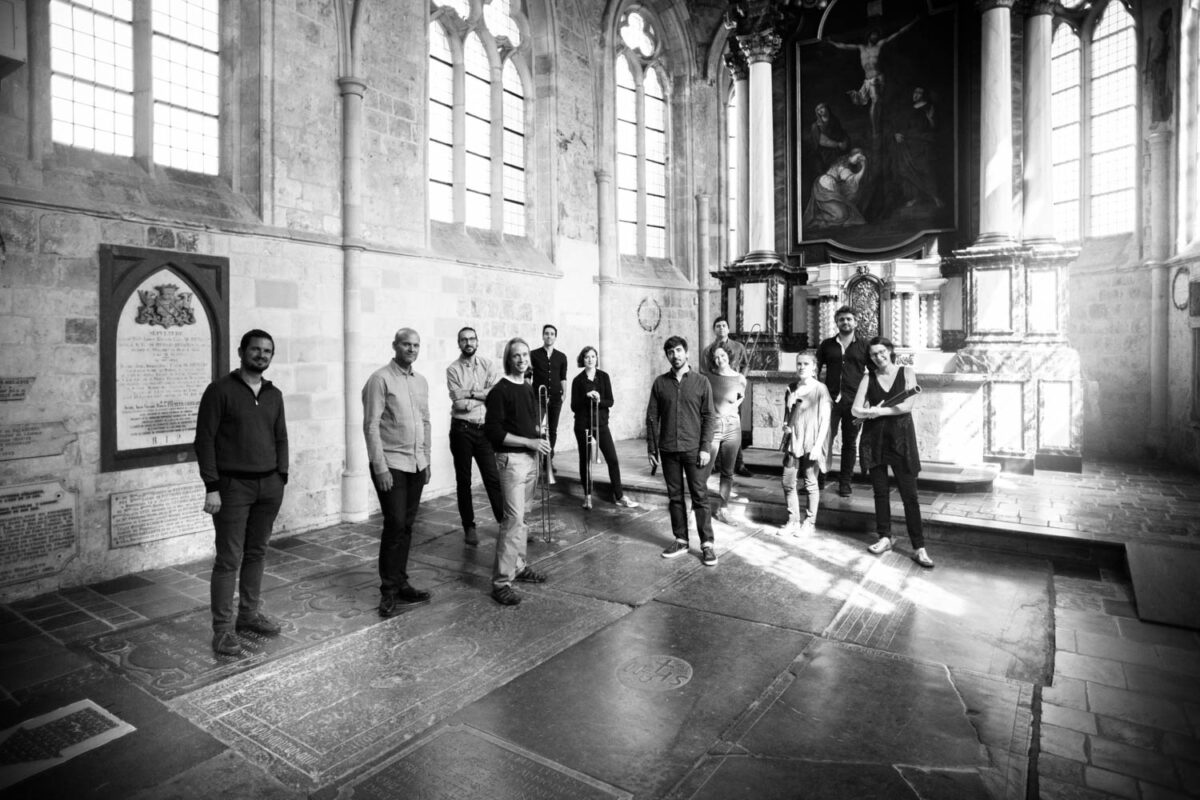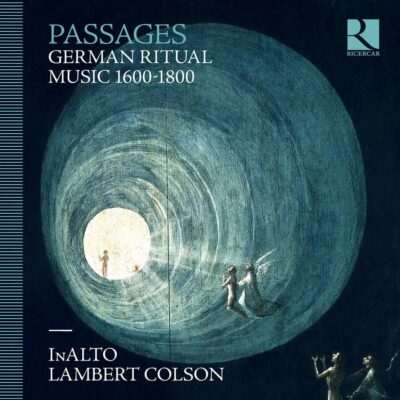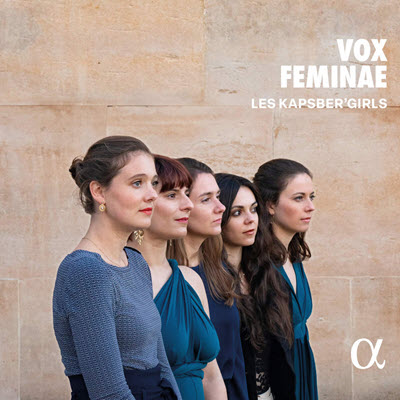by David Smith
Published December 19, 2022
Passages: German Ritual Music 1600-1800. InAlto, led by Lambert Colson. Ricercar RIC443

Brass instruments have been associated with the solemn and the sacred for centuries, far and wide, from the “mournful flatt trumpets” used in Purcell’s funerary music for Queen Mary to Mozart’s trombones, creating the ritualistic air of Sarastro’s priesthood in The Magic Flute, and innumerable tuba mirum invocations in Requiem settings. Passages: German Ritual Music 1600-1800, an album-length treatment focusing on the sombre and ceremonial sounds of the brass, performed by versatile vocal and instrumental ensemble InAlto, is a real treat.
Beethoven’s three Equali for trombone quartet have a fascinating history. Commissioned for a commemoration of All Souls’ Day in 1812, they were later adapted into brief funerary pieces for Beethoven’s own funeral. Nos. 1 and 3 establish a suitably dark tone for the album.

Most of the sentiments tend in a similar direction, with notable exceptions. The final track, for instance, Schütz’s lively setting of a wedding text, is graced by some ecstatic divisions from cornettists Lambert Colson and Darren Moore on top of the texture. Johann Ahle’s gently lilting Freudenlied for soprano duet, brass, and organ, was written to celebrate the birth of the future Holy Roman Emperor Joseph I.
In a particularly cruel segue, however, the Ahle’s Freudenlied is immediately offset by the gut-wrenching pathos of Schütz’s Fili mi Absalon for solo bass. King David’s stricken repetitions of his dead son’s name heighten the text’s raw immediacy, and Schütz’s setting is a powerful response that never fails to raise the hairs on the back of the neck. Geoffroy Buffière alternates between impassioned outpourings of grief and more introspective moments, fully commanding the piece’s wide vocal and emotional range.
A succession of solemn works follows, from Scheidt’s Paduana dolorosa for the instruments alone and Buxtehude’s Klage-Lied, featuring extensive musical metaphors in its text, to a brief, magnificent work by Martin Mayer for soprano, alto, and a full eight trombones.
In Mayer’s Da der Tag ein Ende nahm, the majestic sonority of the brass holds the center as a lengthy introduction sets up the seemingly mundane story of Joseph of Arimathea taking down the body of Jesus from the Cross and burying it. To a theologian, surely far more significance lies in the events preceding and following this—but the musical setting imbues a straightforward, easily-overlooked text with great profundity.
Bach’s O Jesu Christ, meins Lebens Licht, BWV118, while not obscure, perhaps does not rank among his best-known sacred motets. Nevertheless, the slow pulsing of its harmonic lines, its gently overlapping suspensions, and the impeccable logic of its internal part-weaving—even by Bach’s standards—make it a uniquely special piece.

The version for brass ensemble as performed by InAlto, while rarely heard, is in fact the original, from which Bach later arranged the mostly string scoring that is more commonly used today. The eternal riddle of the mysterious litui specified in the score is unlikely to be resolved. But the decision here to use a pair of corni da tirarsi (a high, coiled horn resembling a combination of a soprano trombone and a snail) makes sense and certainly doesn’t offend.
The most substantial work on the album is Dietrich Becker’s 12-minute suite of funerary music for Johann Helm, chancellor of Schleswig-Holstein. In spirit, its text calls to mind the funeral sentences of the Book of Common Prayer set by Purcell—a series of often terse statements on the transitory nature of life and worldly things, with an optimistic turn towards resurrection. Becker lays on a rich series of suspensions in the opening (graced by some suitably Monteverdian ornamentation from the cornetts) before the voices enter to declaim the text, sometimes separately and sometimes in emphatic homophony.
In a strange way, we have Martin Luther to thank for this album. His decision to translate the word “tuba” as “Posaune” could be seen as the starting point that set up the trombone for its unique role in German sacred music, paving the way for composers to explore the rich sounds of low brass. Coming out as InAlto’s tenth anniversary present to themselves, Passages is a great summation of the ensemble’s work to date—intelligently assembled, immaculately performed, and bringing some real gems to light.
David Smith writes as an early-music specialist for Presto Music, and read music at Cambridge University. He sings with the English vocal groups Ex Cathedra and Armonico Consort, and as a lay clerk at St Philip’s Cathedral, Birmingham, UK.




